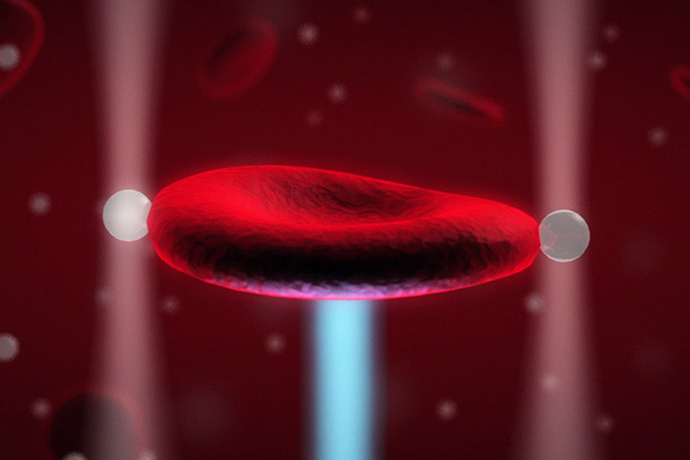BioNano and Medical Photonics

Fundamental and applied research in biology and medicine truly serve as the cornerstones in our ongoing quest to enhance health and well-being across society. This endeavor necessitates a concerted effort, drawing upon the collective expertise of diverse scientific disciplines. Furthermore, it’s clear that new discoveries, ultimately aimed at addressing pressing healthcare challenges, will continue to hinge on the seamless convergence of biology, physics, photonics, engineering, nanotechnology, advanced materials, biomedical sciences, and medicine itself.
Photonics technologies play a crucial role in medical diagnostic tools, and their impact is growing rapidly. In fact, multidisciplinary and intersectoral collaboration on a large scale is essential to successfully move these technologies from the laboratory bench to clinical trials, and ultimately into clinical practice. Moreover, alongside mainstream clinical applications, wellness monitoring is gaining prominence as a way to address societal challenges such as aging. Notably, photonics technologies are revolutionizing this field as well.
Activities
ICFO’s activities in this field span a wide spectrum, ranging from fundamental research aimed at unraveling the intricacies of biological function all the way to the development of cutting-edge technologies poised for clinical use in everyday medical practice. These activities encompass not only the creation of unique tools but also their rigorous testing, practical utilization, and even their eventual commercial exploitation. In pursuit of these goals, ICFO stands at the forefront of research, actively engaging in collaborations with renowned international experts across diverse fields, including cell biology, immunology, neurology, and oncology, among others. Moreover, many of our projects are conducted in partnership with esteemed biomedical centers, both national and international medical research hospitals, as well as local clinicians within the Barcelona area.
Super-resolution microscopy development
Continuous development of cutting-edge optical microscopy and super-resolution technologies that enable the study of biological processes at the single molecular level with high temporal resolution. Some of these techniques exploit novel concepts for label-free imaging and/or operate in a multimodal imaging fashion. All combined, these methodologies enable the investigation of biological processes at the most fundamental level with unprecedented levels of detail and sensitivity.
Functional microscopy
Unraveling the complex interplay between structure, material properties, and function stands as a foremost challenge in the fields of physical biology and biomedicine. To tackle this challenge, researchers are deploying novel, multimodal devices that leverage technologies such as optical tweezers, laser nanosurgery, and optogenetic tools. These cutting-edge devices enable scientists to precisely manipulate cellular states within living biosystems, thereby providing crucial insights into fundamental biological processes. For instance, these tools are being used to elucidate the intricate mechanisms governing how embryos develop and how neurons form complex networks within the brain.
Diffuse optical technologies for clinical and biomedical use tomography
Develop and test technologies using tissue-light interactions in patients at hospitals to impact clinical care, diagnostics and therapy. Develop physical models of photon propagation and interactions in tissues, utilize tissue simulating phantoms to test the concepts, introduce algorithms for data analysis and interpretation and carry out both pilot and large-scale clinical studies. Interdisciplinary and intersectoral efforts join expertise in physics, engineering, biology, biomedicine and clinical practice.
Ultra-sensitive biosensing
Exploit nanophotonic concepts to develop next generation, ultra-sensitive biosensing devices to detect individual biomolecules in the physiological regime in a high-throughput manner and for a broad range of in-vitro applications. Research into nanoantennas for deeper fundamental understanding of cell biology. Nanoparticle research could yield novel cancer therapies. Combining photonics, microfluidics and signal processing for the validation of biosensing devices and filtration in the field of waterborne microorganism detection.
Open questions in biology
Develop technology enabling study of fundamental biological processes previously inaccessible, like how spatiotemporal compartmentalization of biomolecules inside cells regulates and controls cell function, the role of cell mechanical properties for health and disease on the molecular and systems level, how cells sense and respond to mechanical stimuli. Interdisciplinary research combines experiments with rigorous data analysis, include machine learning and novel theoretical models to make testable predictions.
Biomedical and Clinical collaborations
oint endeavors between clinicians, biologists and photonic scientists in the fields of neurology and neurosurgery, neonatal care, ophthalmology, oncology, intensive care monitoring, dermatology, rapid clinical analysis, rehabilitation, sports medicine, wellbeing, sleep disorders, anesthesiology and others, help align medical technologies with the needs of citizens and society. We seek both local and international clinical trials, collaborations and focus on translational research and development.
Groups
We use state-of-the-art optical technologies to probe a variety of tissues from small animals to clinical cases, from sub-cellular length-scales to large tissues such as adult brain and breast.
Our research exploits a battery of single molecule imaging and super-resolution microscopy tools to visualize and manipulate cellular function at the nanometre scale.
We use genetically encoded fluorescent and luminescent reporters to unravel how animals sense their physical environment and protect themselves against mechanical stress.
We conduct research in bioimaging by developing cutting-edge advanced microscopy imaging techniques. We are interested in interdisciplinary research between photonics and biology.